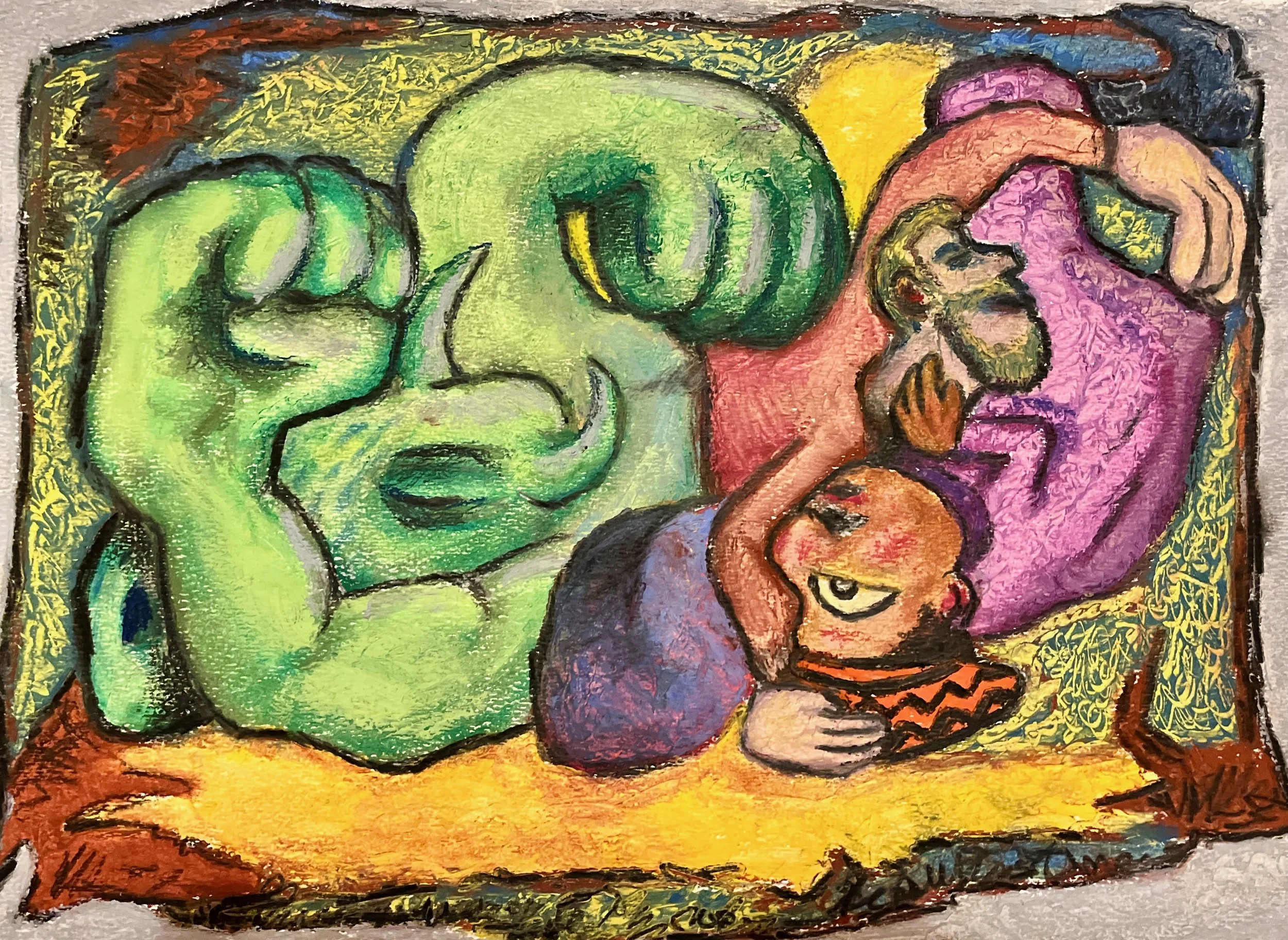Psychedelic Somatic Interactional Psychotherapy (PSIP)
What is PSIP?
Psychedelic Somatic Interactional Psychotherapy (PSIP) is a cutting-edge, body-based approach to therapy designed to help you access and resolve the deepest-seated traumas stored in your nervous system.
Unlike traditional psychedelic models that work with high dosages, relying on the psychedelic to provide the main source of healing, PSIP uses low dosages to target the implicit, non-verbal layers of consciousness, where the roots of anxiety, depression, dissociation, and attachment injuries reside.
How It’s Different
Most psychedelic therapies use a non-directive model. Although the guide is available to check in and offer support, the experience is primarily an inward one, with the primary relationship being between the medicine and the client, and psychological integration occurring in the weeks and months following the session.
PSIP recognizes that while there is merit to the traditional non-directive model, it can miss some key aspects of trauma processing.
Working with lower doses of medicine allows for a more therapeutic experience to be possible, because the client still has one foot firmly planted in ordinary consciousness, while the medicine allows for some of the usual self-protective barriers to loosen enough to gain access to key aspects of deep memory systems in order to help them process and heal.
PSIP also provides a clear structure that gently guides the client toward precisely where they need to go in order to heal. Because the mind is very clever at finding ways to hide painful and overwhelming experiences in a deep labyrinth of self-protective walls, experienced relational guidance is required to gain access to the places we’ve spent a lifetime hiding from.
Why the Body Matters
Many of our struggles—anxiety, depression, dissociation, emotional numbness—aren’t just psychological. They’re stored in the body. PSIP taps into your innate ability to heal by helping you stay present with what’s happening beneath the surface, especially when it’s hard to feel or articulate.
The Role of the Therapist
PSIP is not done internally in silence. As your therapist, I actively support the process, helping you stay with your experience while also tracking relational dynamics—especially important if your wounds are rooted in early attachment relationships.
What Does PSIP Look Like?
Here are two highly recommended videos to check out that demonstrate what PSIP can look and feel like.
Working with Negative Transference in a Ketamine PSIP Session
PSI Founder & Director of Education Receives His Own
Ketamine PSIP Session
How does PSIP work?
At the core of PSIP (Psychedelic Somatic Interactional Psychotherapy) is a radical assumption: your body already knows how to heal. Rather than focusing on verbal insight or reliving past memories, PSIP taps into the innate intelligence of the autonomic nervous system.
It does this by combining low-dose psychedelics with precise relational attunement and moment-to-moment tracking of physical and emotional cues. These elements together help you access and metabolize deeply stored trauma patterns that talking alone often can’t reach.
What makes PSIP unique is its emphasis on state-based processing. Trauma isn’t just a story—it’s a state that gets encoded in the body. Using carefully guided attention, PSIP helps you enter these trauma-bound states and allow them to complete. This often happens without needing to “understand” the trauma cognitively. Instead, the body reveals and resolves unfinished survival responses like fight, flight, freeze, or fawn—sometimes in surprising or nonlinear ways.
You may shake, cry, twist, laugh, sweat, or go silent. The point isn’t to control the process, but to support it as it unfolds organically.
Another key element of PSIP is the interactive container. The therapist doesn’t disappear into the background. Instead, they track your subtle cues, titrate intensity, and maintain a sharp, real-time presence—offering questions, reflections, or silence as needed. This co-regulation is crucial. It allows for the emergence of previously unreachable experiences, from preverbal attachment ruptures to intergenerational grief, with the safety and pacing required for true resolution.
Over time, clients often report feeling not just less symptomatic, but fundamentally restructured. Patterns that felt frozen for decades begin to shift. What was once terrifying becomes tolerable. And in place of overwhelm, many discover a deeper contact with presence, agency, and vitality. In this way, PSIP isn’t just trauma resolution—it’s a return to the body’s original blueprint for wholeness.
You can download a copy of the PSIP White Paper, which gives a more comprehensive picture of the research, theory, and impetus for creating PSIP here.
PSIP FAQS
Do you offer consultative PSIP if I’m already working with an individual therapist?
Yes. If you would like to consider this option, I typically recommend that we do at least a few initial sessions to get to know each other. I will assess your readiness and the suitability of PSIP to your concerns, and share my assessment transparently with you once I feel clear about whether I feel we can proceed.
Does PSIP work for everyone?
PSIP can be profoundly effective, but it isn’t a one-size-fits-all modality. It’s best suited for people who are ready to work at a deep level—those who may have tried talk therapy, somatic work, or other healing methods, and are still sensing that something core hasn’t fully shifted. Because PSIP works directly with the nervous system and unconscious material, it tends to reach places that other therapies don’t—but it also requires a willingness to tolerate intensity, uncertainty, and nonlinear healing.
Some people find that PSIP opens doors quickly; for others, it takes time to build trust with the process. It’s especially supportive for individuals dealing with early developmental trauma, attachment ruptures, or a sense of being “stuck” despite doing a lot of personal work. That said, it’s not always the right fit for someone in acute crisis, struggling with psychosis, or looking for a more structured, insight-oriented approach.
In short: PSIP works best for those who feel called to a deeper layer of healing, and who are open to letting their body—not just their mind—lead the way.
If you would like to find out more about any of these factors to see if PSIP is right for you, please click the link below and send me a message by clicking here.
Interested but not sure you’re ready to take the leap yet?
Starting a new therapy can be daunting! I am invested in making sure you have all the information you need to decide if working together is right for you.
Give me a shout, I’d love to answer any of your questions about PSIP!
My office is located at:
3120 Telegraph Ave. Suite 3A
Berkeley, CA 94705






